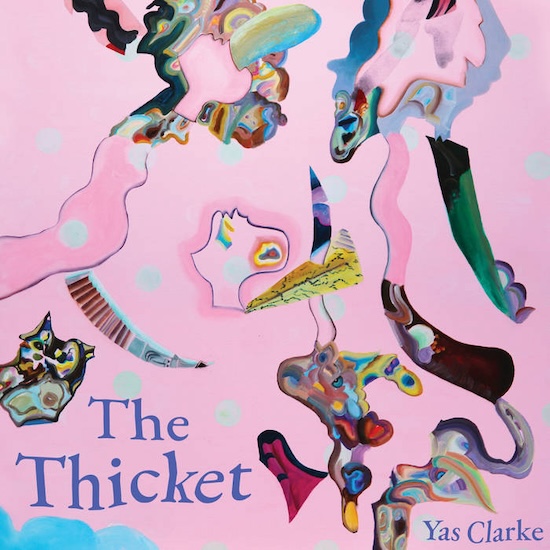The Thicket, by Bristol-based sound artist Yas Clarke, builds stark, looping patterns out of echoing voices. Written for four vocalists, the piece is a meditation on humans and our place on Earth, conjuring both a sense of home and another world. Each movement takes ideas that at once feel so natural – the human voice, cyclic motion – and distorts them into alien dreams.
At its heart, The Thicket explores four haunted voices as they crash into each other and disappear or meet in consonance and clash in dissonance. Most intriguing is the way Clarke explores the voice; with The Thicket, he unpacks each word and syllable until they disintegrate and then pieces them back together again. It’s a central part of his practice – as an artist, he’s interested in understanding the barriers between “human” and “natural” and diving into the relationship between the two. With The Thicket, he draws on a lineage of process-based music, like Meara O’Reilly’s Hockets for Two Voices EP or Steve Reich’s early classical minimalism, to delve into those relationships, constantly seesawing between English words and syllables, snippets that carry meaning and those that feel like fantastical imaginations.
Clarke filters each of his vocal experiments through the lens of nature. Each pattern branches out like a tree as it grows and changes, turning from yellowed browns and back to bright greens, growing new twigs with each passing day. As words metamorphose from one phase into the next, they lose their meaning and regain it. The word “sunset,” for example, begins clearly, spoken like rays that glimmer from one voice to the next. As the singers repeat the word, their crisp pronunciation gradually becomes darker and loses its edge, eventually becoming word putty, like the sun as it disappears into the darkness of night. Other times, the words transform into breaths that sound like gusts of wind, pulsating like the swirls of a storm. Each of these abstract ideas feel like impressions of nature, imagined through uncanny voices.
Though for all its natural influence, The Thicket sounds its most compelling when it gets a little otherworldly. In the album’s first three excerpts, there are no words – just syllables that ping back-and-forth, much like the way a robot might talk. Each voice sounds sterile, almost as if it were a computer. And yet, they’re humans singing in rhythm, together. With this music, Clarke reminds us that the barriers between real and imagined, natural and inorganic, aren’t so strict – they’re porous and waiting to be blurred.


